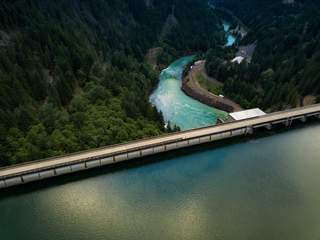
© Dan Meyers / Unsplash
How the European Commission wants to conquer nature
The Action Plan is part of the European Green Deal and aims to provide a compass for mainstreaming pollution prevention into all relevant EU policies, maximize synergies, accelerate implementation, and identify potential gaps and trade-offs. The Action Plan aims to examine the implementation and enforcement of existing legislation and the monitoring of pollution prevention and control measures, and to drive societal change. The Action Plan announces numerous legislative and non-legislative measures. The "ZeroPollution Target" enshrined in the Action Plan will thus strongly shape European environmental policy in upcoming years.
Zero pollution target is unrealistic
Any proposed solutions for reducing pollutants in air, water and soil should be subject to realistic targets. Utopian demands are neither feasible nor goal-oriented. A clear distinction must be made between the utopian goal of a pollution-free environment and the realistic goal of a low-pollution environment. Pollutants are already naturally present in the environment in various concentrations. A differentiated view of the facts and risk-based approaches should form the basis for political discussions.
Redundant European projects
In October 2020, the proposal for an 8th Environmental Action Program (8th EAP) of the European Union for the period until 2030 was presented. The 8th EAP aims to ensure a binding framework for action on European environmental and climate policy until 2030. In the draft, the "Zero Pollution Target" for a pollution-free environment, including air, water and soil, and protection of the health and well-being of citizens from environmental risks and impacts is already mentioned as a priority thematic objective. The temporally parallel development of both projects with ever new and overlapping objectives raises the question of why existing effective legislation is not further developed and the focus placed on its effective implementation in all EU member states.
Shaping the transformation of the economy reliably and securely
European industry is currently undergoing a structural transformation and must deal with the impact of the pandemic. It needs long-term, reliable and realistic targets and risk-based solutions:
- The Water Framework Directive has proven its worth as an instrument for water protection and has contributed significantly to a sustainable water policy. BDI advocates a revision of the Water Framework Directive.
- The Industrial Emissions Directive is the most important instrument for regulating emissions of air, water and soil pollutants. A revision of the directive is not necessary.
- A revision of the Seveso-III-Directive is not necessary. European law creates the regulatory conditions; application in the member states is crucial.
- The European air quality directives have been effective in improving air quality and achieving high air quality standards. There is no need to revise these directives.
- The subsidiarity principle stands in the way of European regulations for soil as an environmental medium. The introduction of a European legal framework for soil should therefore also be avoided in the future in view of the subsidiarity principle.
German industry makes a significant contribution to the prevention and reduction of environmental pollution and wants to shape the transformation towards a climate-neutral and circular economy.



